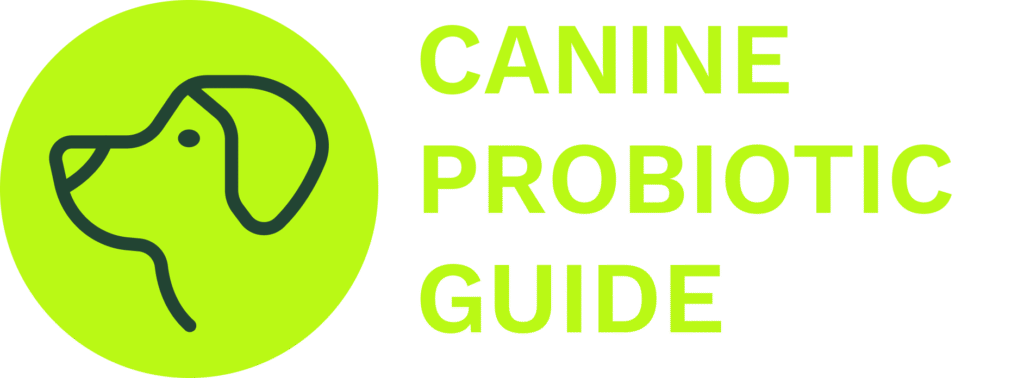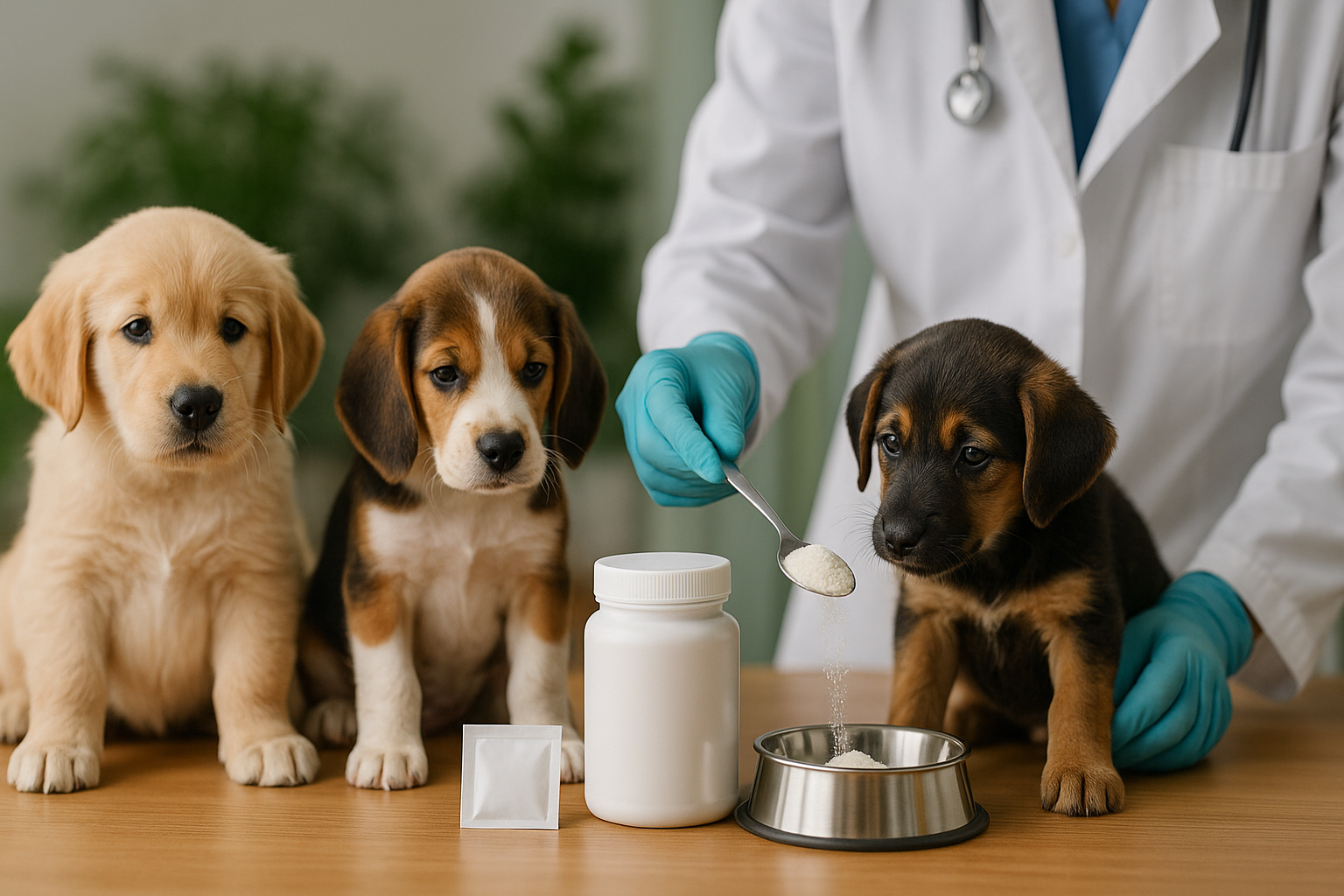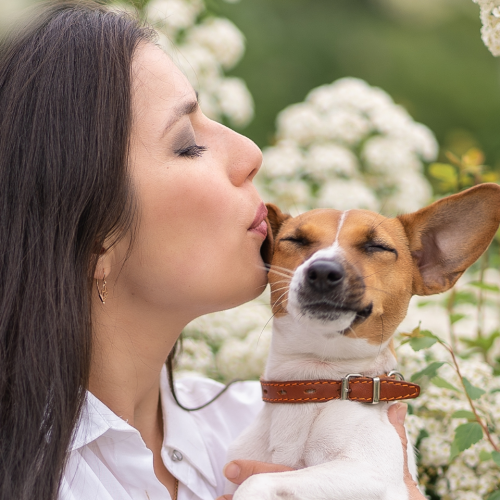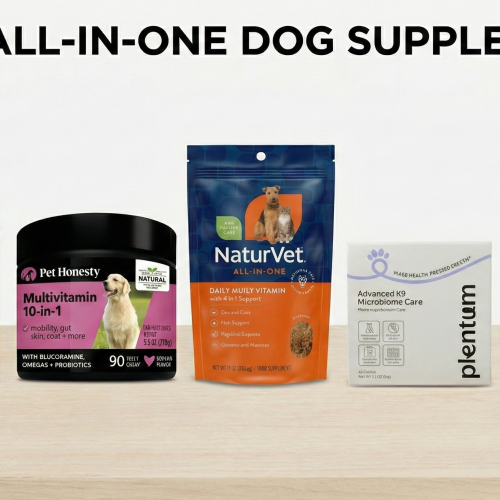What Are Probiotics?
Probiotics are live microorganisms—mainly certain bacteria and yeasts—that, when administered in adequate amounts, can confer health benefits to the host. In dogs, popular probiotic strains include Lactobacillus and Bifidobacterium species, which are naturally found in a healthy canine gut and even in canine milk and colostrum.
How Do Canine Probiotics Work?
Probiotics work by supporting a healthy balance of beneficial bacteria within the digestive tract. This balance is crucial for immune system function, digestion, and protecting your puppy from harmful pathogens. They can improve gut barrier function, reduce inflammation, and help outcompete potentially harmful microbes.
The Benefits of Probiotics for Puppies
Supporting Puppy Nutrition
During stressful periods like weaning, puppies’ intestinal microbiota can become imbalanced. Supplementing with certain probiotics has been shown to support gut health, aid digestion, and reduce the frequency and severity of diarrhea or gastrointestinal upset in puppies.
Enhancing Puppy Wellness
A robust gut microbiome can influence overall wellness. Probiotics have been linked to improved immune response, reduced risk of gastrointestinal infections, and even faster recovery from conditions like gastroenteritis in puppies.
Are Probiotics Safe for Puppies?
Common Concerns and Misconceptions
- Too Young? Many assume puppies are too young for probiotics, but some probiotic strains are naturally present in mothers’ milk and the early puppy gut.
- Are All Probiotics Safe? Not all products on the market are created equal. Only specific, well-researched strains with dog-specific safety data should be used, and dosage/form matters.
Expert Opinions on Safety
Multiple studies have found that carefully selected probiotic strains are safe for puppies and can even help during high-risk periods, such as weaning or after antibiotic use. However, experts stress that immune-compromised puppies or those with chronic illnesses should only take probiotics under veterinary supervision.
Potential Side Effects of Probiotics in Dogs
Common Side Effects in Puppies
Probiotics are generally well tolerated, even in very young puppies. Mild, temporary side effects may include:
- Slight digestive upset (gas or softer stools during the initial days)
- Rare allergic reactions if the product contains flavorings or other additives
Serious side effects are extremely uncommon when using well-studied, canine-specific probiotics at appropriate doses.
When to Consult a Veterinarian
- Persistent diarrhea, vomiting, or signs of illness
- Puppies with immune system disorders or chronic conditions
- Before starting any supplement in puppies less than 8 weeks old
Choosing the Right Probiotic for Your Puppy
Types of Probiotics Suitable for Puppies
Select products using veterinarian-recommended, canine-derived strains such as specific Lactobacillus and Bifidobacterium types. Some strains tested in controlled puppy trials include Lactobacillus rhamnosus, Lactobacillus plantarum, and Lactobacillus acidophilus, among others.
Recommended Probiotic Treats for Dogs
- Choose products formulated specifically for puppies, with clear labeling on strains and colony-forming units (CFUs).
- Prefer brands with published safety and efficacy data from veterinary research and those recommended by your veterinarian.
Factors to Consider When Selecting Probiotics
- Canine-specific strains—not generic human probiotics.
- Quality and purity—verified by third-party or veterinary authority.
- Right dose—follow veterinary or manufacturer guidelines for puppies’ age and size.
- Storage—many probiotics require refrigeration to maintain viability.
Conclusion: Weighing the Risks and Benefits
For most puppies, properly chosen probiotics are safe, and they can support gut and immune health, especially during times of stress or digestive upset. However, safety depends on:
- Using products formulated for puppies
- Selecting well-researched, canine-derived strains
- Consulting your veterinarian, especially for puppies with pre-existing health issues
Avoid unverified or non-specific products and always monitor your puppy when starting any new supplement. With the right approach, probiotics are more likely to help than harm, setting your puppy up for a healthier, happier life.







